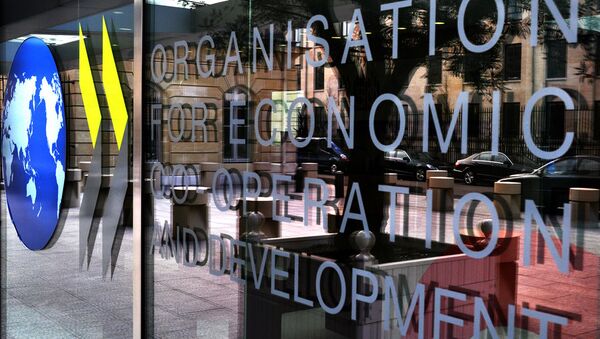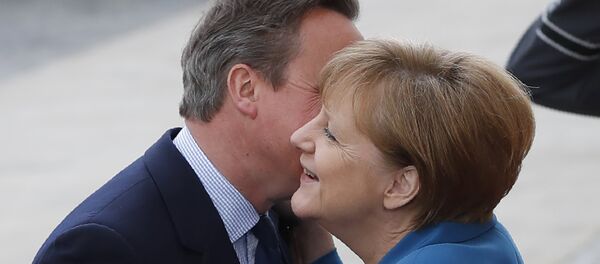"Compared to the situation in April 2014, when the previous Surveys were released, there are reasons for optimism. Growth has picked up, if only gradually, and spread to virtually all EU countries. Tensions in financial markets have decreased further and an agreement has been reached recently for continued financial support of Greece. Unemployment is steadily declining, although it is still too high in many countries," OECD Secretary-General Angel Gurria said presenting the surveys in Paris.
The surveys also show that the EU GDP is growing slowly – the OECD forecasts that the European economy will grow by 1.8 percent this year and by 1.9 percent in 2017. The prognosis for the eurozone GDP growth is a bit worse – 1.6 and 1.7 percent respectively.
Along with economic problems that are remains of the economic crisis, the reports say that there are new challenges for the EU economy that must be tackled – primarily, the influx of migrants and refugees as well as possible Brexit.
"Brexit would lead to economic uncertainty and hinder trade and foreign direct investment flows both of the UK and the EU, hurting growth," the OECD press-release said.
The surveys contain a number of recommendations for the EU states including using budgetary spending to boost growth, easing financial constraints, deepening the single European market by increasing labor mobility, boosting competition in network industries as well as enhancing research and development policy.
"Most of these recommendations have one thing in common: they call for collective action by European countries… Continued cooperation is needed to implement effective solutions to common problems," Gurria said.
He also added that the alternative to collective actions is not the status-quo as lacking cooperation will result in decreasing economic growth and destroying jobs in Europe.



